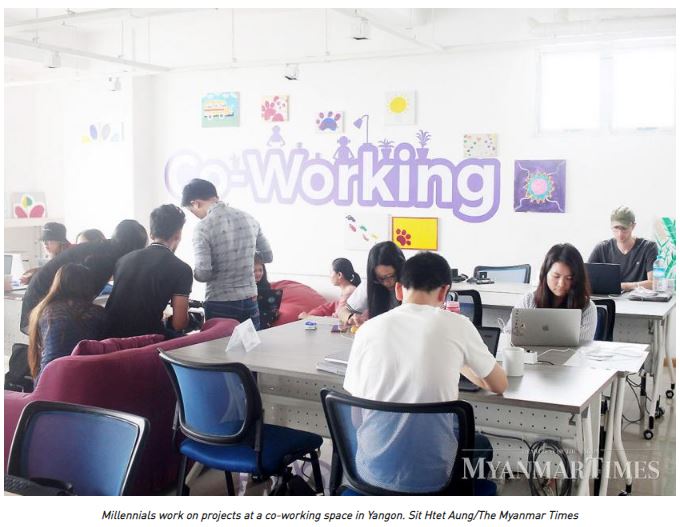Growing Myanmar’s gig economy
Across Asia, contract and freelance positions in firms from start-ups to large conglomerates are becoming more commonplace. While still novel in Myanmar, the so-called “gig” economy is expanding as companies turn more cautious when hiring. Meanwhile, workers are opting for the freedom to maintain a better work-life balance or opportunity to earn from diversified sources of income.
A 2019 global Deloitte survey of over 13,000 millennials found almost half of respondents believe gig workers earn as much as those in full-time jobs and the same number think gig workers have a better work-life balance. In Asia Pacific, eight in 10 talent managers hire or use gig workers, according to a 2018 report from KellyOCG.
In Myanmar, freelance and contract jobs are becoming a good way for companies to avoid the commitment of hiring full time and for jobseekers to earn extra income. Compared to the rest of the region though, gig opportunities are less common, said Ma Hani Mya Win, founder of Chatesat, an online platform which connects freelancers to employers.
“Employers are mostly still hiring full time. Part time or freelance jobs are few and far between and workers are still skeptical of the nature of short-term jobs,” she said, adding that most freelance jobs in the country are for digital work such as web development and video editing as well as graphic design.
But things are slowly evolving. More recently, freelancers are landing jobs in Myanmar’s expanding startup community. “Startups like the option of hiring on short-term contracts as they cannot afford to hire full-time,” said Ma Hani Mya Win, who is now working on expanding the platform and promote the gig economy in Myanmar.

Ma Hani Mya Win, founder of Chatesat. Photo – Supplied
“We want to develop the market for part-time workers. We would like to enable people to work from anywhere anytime, so we connect them only with part-time jobs consisting mostly of three or six-month contracts. We want to empower more workers by giving them the option to balance work and life while still having options to earn extra income,” she said.
Setting a new fees and commission benchmark for connecting jobseekers to employers will be key to achieving this goal. “My sister used to be a freelancer and she had to pay half her salary to the recruiting agent in fees in return for landing her the job. Those are very high charges and we want to solve this issue to move the sector forward,” she said.
At Chatesat, fees are two-sided. “The fee is shared by employers and freelancers. The freelancer has to pay us a fee of 10pc while the client may have to pay 15pc or 20 pc, depending on the services.”
While Chatesat works more with local clients, making it the go-to platform for Myanmar employers, businesses from Thailand, Singapore, Malaysia, the US and New Zealand have also hired freelancers in Myanmar on its website.
Since its establishment in 2016, Chatesat has registered over 24,000 freelancers and about 5,000 client employers. Freelancers who get jobs through Chatesat “earn a good amount of money,” said Ma Hani Mya Win.
Source: https://www.mmtimes.com/news/growing-myanmars-gig-economy.html


 English
English




